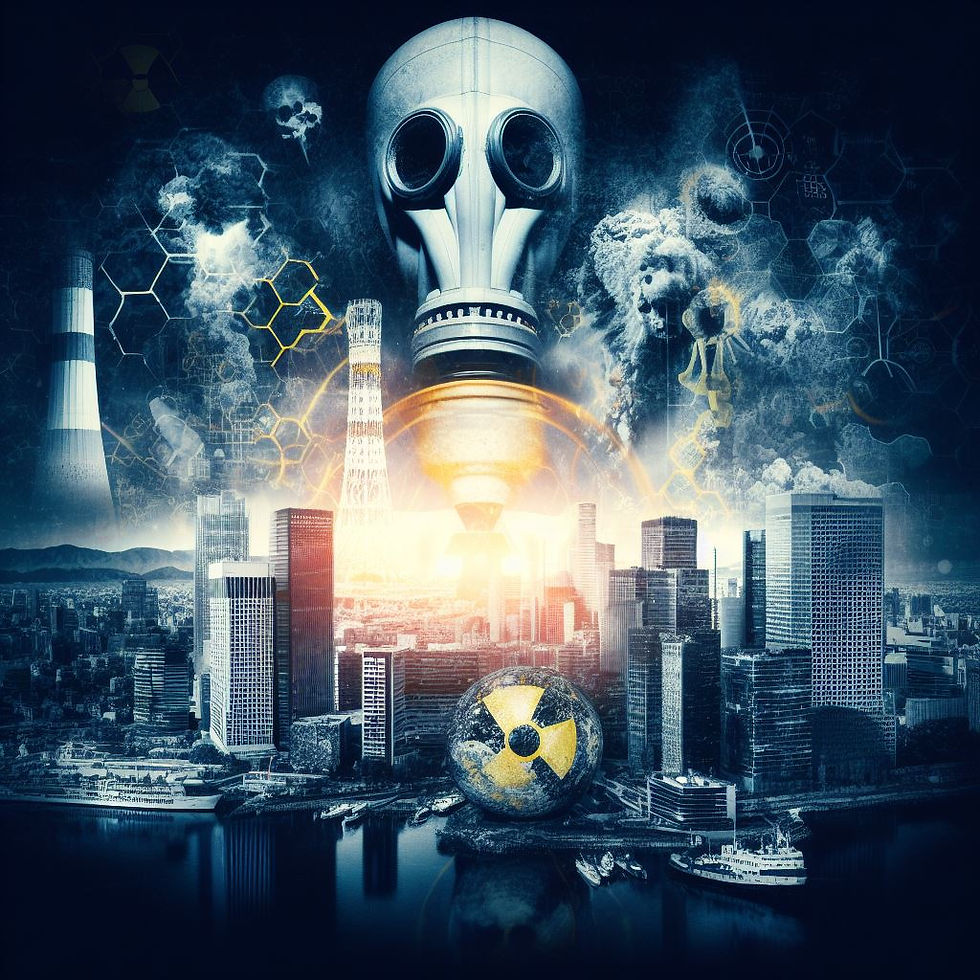Overcoming Objections to Nuclear Energy: Clear Answers to Common Concerns
- Jun 30, 2025
- 5 min read
Engaging in conversations about nuclear energy can be both exciting and challenging—especially when you're passionate about its potential but unsure how to respond to common criticisms. Whether you're a student, professional, or advocate for clean energy, it's natural to feel a bit hesitant when faced with tough questions or misconceptions about nuclear power.
This article is designed to empower you with clear, confident, and well-informed responses to the most frequently raised objections. We've identified the top 10 concerns people often express about nuclear energy—from safety and waste to cost and public perception—and provided thoughtful, evidence-based replies to help you navigate these discussions with ease. Our goal is to equip you with the knowledge and language to advocate effectively for nuclear energy as a vital part of a sustainable and secure energy future.

Here are some of the main objections that people have raised regarding the use of nuclear energy:
#1 Safety Concerns:
Challenge:
High-profile accidents like Chernobyl (1986) and Fukushima (2011) have left a lasting impression on the public, raising fears about the safety of nuclear power. The concern is that a single failure could release harmful radiation, with devastating long-term consequences for people and the environment.

Response:
While these incidents were tragic, they were also catalysts for major advancements in nuclear safety. Today’s nuclear reactors are designed with multiple redundant safety systems, including passive cooling, automatic shutdown mechanisms, and robust containment structures.
Modern designs—such as Generation III+ and upcoming Generation IV reactors—are engineered to prevent the kinds of failures seen in the past. Statistically, nuclear energy has one of the lowest fatality rates per unit of electricity generated, outperforming coal, oil, and even hydropower in terms of safety.
#2 Nuclear Waste:
Challenge:
Nuclear power produces radioactive waste that remains hazardous for thousands of years. Critics argue that we still lack a universally accepted, long-term solution for its disposal.
Response:
It’s true that nuclear waste requires careful handling, but the volume produced is surprisingly small—especially when compared to the vast quantities of toxic waste from fossil fuels.
Technologies like deep geological repositories are being developed and implemented to safely isolate waste for millennia. Countries like Finland are already leading the way with operational long-term storage solutions. Additionally, research into recycling spent fuel and advanced reactor designs could drastically reduce both the volume and longevity of nuclear waste.

#3 Nuclear Proliferation:
Challenge:
The fear is that civilian nuclear programs could be used as a cover for developing nuclear weapons, threatening global security.
Response:
While the concern is valid, the reality is more nuanced. Most nuclear energy programs operate under strict international oversight. The Nuclear Non-Proliferation Treaty (NPT) and the International Atomic Energy Agency (IAEA) provide robust frameworks to monitor and prevent the misuse of nuclear technology.
Many countries have successfully operated nuclear power plants for decades without pursuing weapons programs. Continued international cooperation and transparency are key to ensuring peaceful use.

#4 High Costs:
Challenge:
Nuclear power plants are expensive to build and maintain. Projects often face delays and budget overruns, making them less attractive compared to cheaper renewables.
Response:
While upfront costs are high, nuclear plants offer decades of stable, low-carbon electricity. Over their lifetime, they can be cost-competitive—especially when factoring in the environmental and health costs of fossil fuels.
New approaches like Small Modular Reactors (SMRs) and standardized designs are helping reduce construction times and costs. With the right policy support and financing models, nuclear can be a smart long-term investment.
#5 Limited Fuel Supply:
Challenge:
Uranium, the primary fuel for most reactors, is finite. Some argue this limits the long-term viability of nuclear energy.
Response:
Uranium is more abundant than many people realize, and current reserves could last for decades even without recycling. Moreover, breeder reactors and thorium-based systems offer promising alternatives that can extend fuel supplies significantly.
Advanced fuel cycles are also being developed to extract more energy from existing materials, reducing waste and improving sustainability.
#6 Environmental Impact of Mining:
Challenge:
Uranium mining can damage ecosystems, pollute water sources, and emit greenhouse gases.
Response:
Like all forms of resource extraction, uranium mining has environmental impacts. However, these can be minimized through modern regulations, improved technologies, and responsible practices.
Importantly, the overall environmental footprint of nuclear—including mining—is still far lower than that of fossil fuels. And because nuclear fuel is so energy-dense, far less material is needed to produce the same amount of power.
#7 Renewable Alternatives:
Challenge:
Why invest in nuclear when we have clean, renewable options like solar, wind, and hydro?
Response:
Renewables are essential—but they’re not always available when we need them. Nuclear energy provides reliable, 24/7 baseload power that complements intermittent sources like wind and solar.
By combining nuclear with renewables, we can build a resilient, low-carbon energy system that meets demand even when the sun isn’t shining or the wind isn’t blowing.
#8 Long Construction Timelines:
Challenge:
Nuclear plants can take a decade or more to build—too slow to address the urgent climate crisis.
Response:
It’s true that traditional nuclear projects have long timelines. But newer approaches, like modular construction and streamlined regulatory processes, are helping speed things up.
Investing in nuclear now ensures we have a stable, low-carbon energy source ready to support the grid for the next 60–80 years. It’s a long-term solution that complements the rapid deployment of renewables.
#9 Public Perception:
Challenge:
Many people remain wary of nuclear energy due to past accidents and media portrayals, making it difficult to gain public support.
Response:
Public perception is shaped by emotion and experience—but it can evolve. Education, transparency, and community engagement are key to building trust.
Highlighting the safety record of modern reactors, the role of nuclear in fighting climate change, and the success stories from countries like France and Canada can help shift the narrative.
#10 NIMBY (Not In My Backyard) Opposition:
Challenge:
Even those who support nuclear in principle may oppose having a plant or waste facility near their community.
Response:
Local opposition often stems from fear and lack of information. Open dialogue, community involvement, and clear communication about safety measures and economic benefits can make a big difference.
When communities understand the jobs, investment, and energy security that nuclear can bring, they’re more likely to support it.
Nuclear energy isn’t a silver bullet but it’s a powerful tool in our fight against climate change. By addressing concerns with facts, empathy, and transparency, we can help shift the conversation and build a more informed, balanced view of nuclear power.
Whether you're speaking with friends, colleagues, or policymakers, being prepared with thoughtful responses can make all the difference. Together, we can help nuclear energy take its rightful place in a clean, secure, and sustainable energy future.


Comments